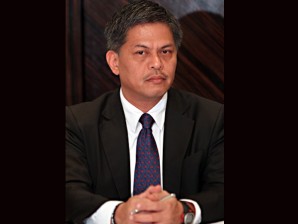Muslim teachers instructed not to wear veils during classes
MANILA, Philippines—The Department of Education (DepEd) has asked teachers of subjects in Arabic Language and Islamic Values Education (ALIVE) in public schools not to wear face veils in the classroom as this would get in the way of effective teaching.
“Once the ustadja (teacher) is in the classroom, she is requested to remove the veil,” said Education Secretary Armin Luistro in an order dated July 16.
Luistro said wearing a veil would keep students from seeing the teacher’s face in class.
“In support of effective language teaching, recognition and discrimination of letters and their sounds are enhanced. Lip formation significantly helps in the correct production of the letter sounds,” Luistro said.
Seeing the teacher’s face without the veil would be necessary “for proper identification of the teachers by the pupils, thus promoting better teacher-pupil relationship,” he added.
Article continues after this advertisementLuistro made the request even as he reiterated DepEd’s standing policy of protecting the religious rights of students in school.
Article continues after this advertisement“While the Department supports and promotes the right of Muslim Filipino women to wear hijab/veil (or headdress), it does not compel Muslim Filipino women to wear it,” he said.
During their Physical Education subject, Muslim school girls are allowed to wear “appropriate clothing in accordance with their religious beliefs.”
Muslim students are also not required to participate in non-Muslim religious rites.
DepEd has begun to professionalize asatidz (Muslim teachers) who teach in madaris (Muslim schools) by hiring them as permanent teachers to teach ALIVE subjects in public elementary schools in Muslim-dominated areas.
DepEd introduced a standard curriculum for private madaris and select public schools that incorporates ALIVE subjects with regular subjects in order to integrate madrasah education graduates into mainstream education.
